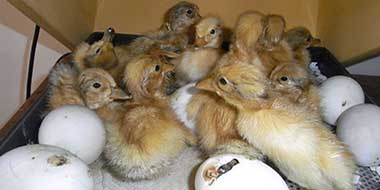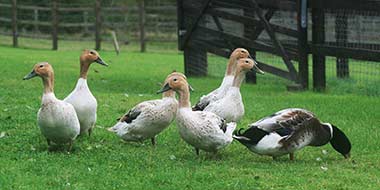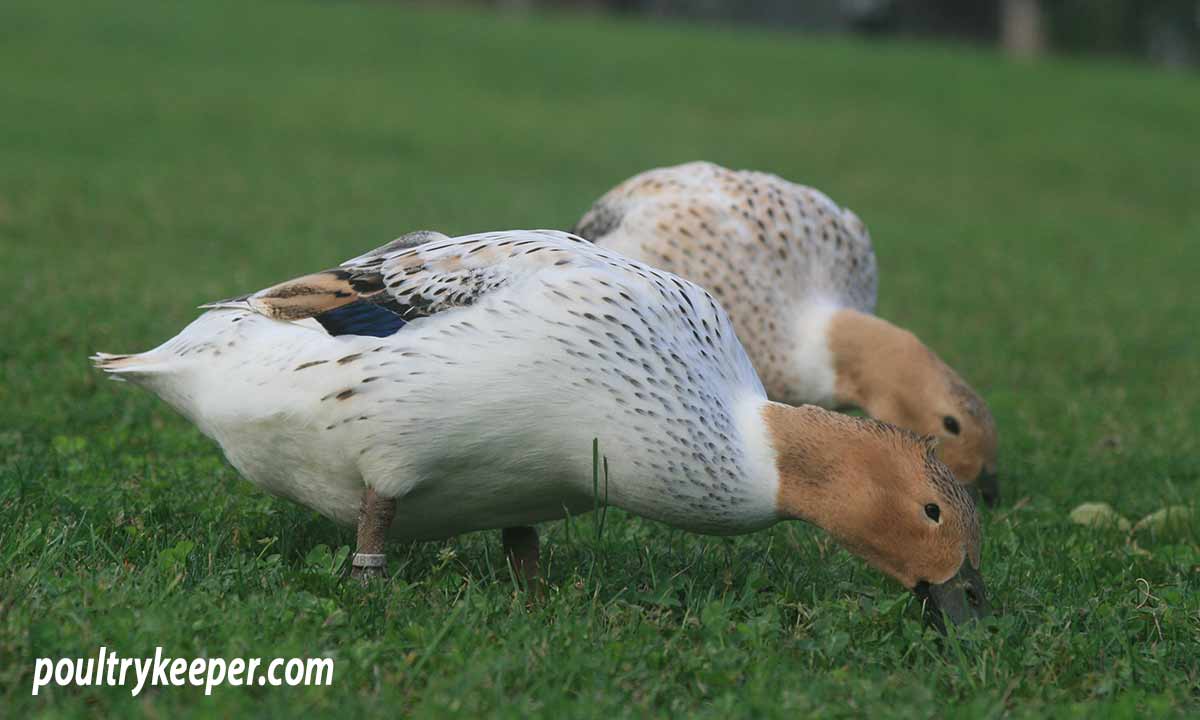
This article provides information about feeding ducks: specifically domestic ducks. That is, pet ducks that are kept in gardens and on smallholdings. Wild ducks and Ornamental Wildfowl are not covered here.
Ducks love to forage for insects, snails, worms, especially near water, where they will also find aquatic insects when dabbling or ‘sifting’ through the water or mud. While free-ranging on grass, they will also consume seed heads and small amounts of grass, chickweed and clover.
Feeding domestic ducks
Given sufficient food on their pasture, wild ducks find most of their own food; however domestic ducks have been bred to be larger or lay more eggs and are restricted to a smaller area or run, they have greater protein and energy requirements than wild ducks. They cannot survive without a ‘top up’, so the common question is, what do we feed domestic ducks?
To ensure they are getting enough food, domestic ducks require a balanced feed with sufficient protein, which is also why it can be cruel to release domestic ducks into the wild. Many of the heavier breeds will slowly starve to death.
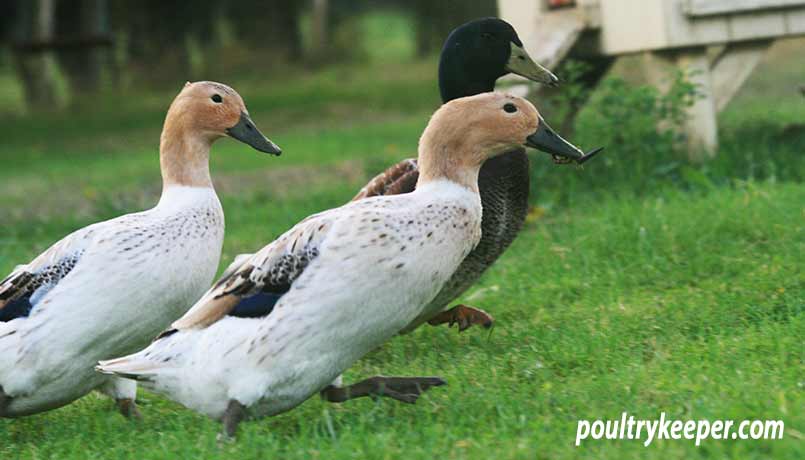
Layers pellets
Feeding ducks that are laying with food with a protein content of about 16% is ideal for supplementing their foraging.
We can give the feed on an ad-lib in a hopper or feed ducks in the morning once they are let out of their house and again in the evening, placing the feed in a heavy-based feeder to stop it from tipping over. Feeding them in the same place and at the same time, each day also establishes a routine for them.
I have had good results using Fancy Feeds Layers Pellets, or the Smallholder Range layers pellets, which are both unmedicated layers feeds suitable for laying ducks.
You can buy Layers Pellets here.
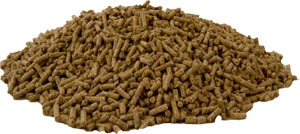
As a rough guide, ducks will eat between 150 – 200g (6 – 7oz) of food a day, depending on their size.
Too much calcium can be the cause of Kidney failure. Calcium levels in chickens’ layers feed, around 3-4% is required for egg-shell production, but drakes or ducks that aren’t laying require less (around 1%).
To overcome this problem, we can also provide straight wheat.
Wheat
We can feed wheat in the bottom of a half bucket of water which ducks can reach when putting their heads into the water.
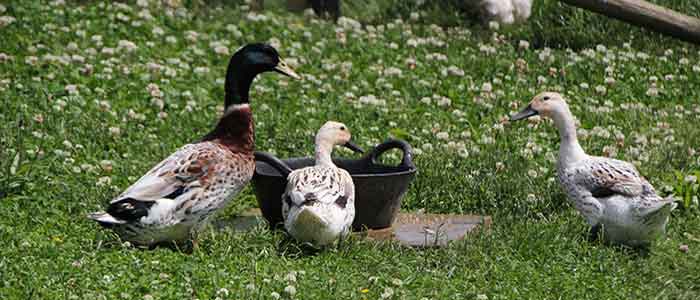
During the winter, my ducks will eat far fewer layers pellets and more wheat. This is reversed during the breeding season between February and August, when the ducks are laying.
Whilst wheat can be fed dry, and water can be provided separately, although it usually makes sense to combine the two – it stops pests such as crows, rats and mice from stealing the wheat but also softens it, aiding digestion.
If you keep chickens and ducks in the same pen, having wheat underwater also stops chickens from eating it. Too much wheat would unbalance chickens’ diets. Feeding chickens is a lot about ensuring they are eating a complete, formulated feed and limiting their treats, so they have sufficient protein to produce a good number of eggs for us. Wheat is lower in protein than layers pellets.
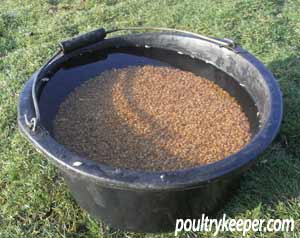
As with other poultry, water is vital to your ducks’ health, and we should provide it fairly close to their feeders so they can drink in between feeding.
Treats for ducks
If you would like to give your ducks treats (these can also be used to tame them), you can feed them some peas or sweetcorn. Be sure to defrost them fully if they are frozen. Ducks will also enjoy nibbling on a little lettuce too.
There is further information on the other aspects of keeping ducks in my Beginners Guide to Keeping Ducks and additional articles in the Keeping Ducks category.
I hope you enjoy your ducks!

